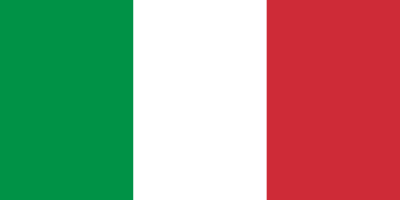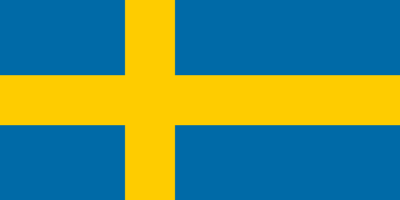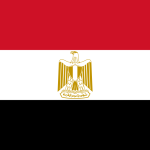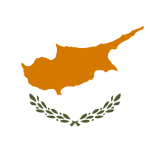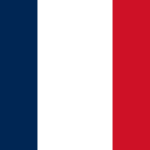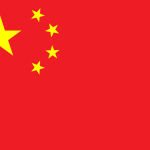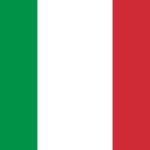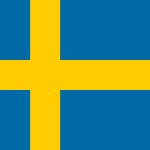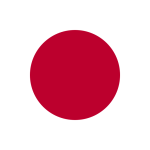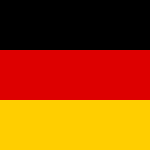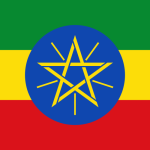Cyprus flag color codes is a visually striking banner with deep cultural significance. The Cyprus flag features a map of the island nation in gold on a white field. It is fringed with two narrow horizontal bands of blue and red. Each color on the Cyprus flag carries special meaning. The gold represents the wealth of the copper deposits on the island, the white stands for peace, and the blue and red symbolize Greece and Turkey respectively. This article will provide the specific Cyprus flag color codes in HTML HEX, RGB, PANTONE, HSL, CMYK, HWB, and NCOL formats. Learning the precise Cyprus flag color codes allows graphic artists and web developers to accurately reproduce the colors of this iconic national flag.
Table of Contents
What are the colors of Cyprus flag?
The flag of Cyprus consists of a map of the island in gold on a white field, with two olive-green branches below.
The main colors of the Cyprus flag are:
- Gold (Pantone 464C) – Represents the island of Cyprus
- White – Represents peace
- Olive Green (Pantone 574C) – Represents the olive branches as a symbol of peace
So in summary, the three main colors are gold, white, and olive green.
Cyprus flag color codes & Color Names:
BLUE
| Color Model | Values |
|---|---|
| HTML | #0033A0 |
| HEX | 0033A0 |
| RGB | (0, 51, 160) |
| PANTONE | 286 C |
| HSL | (217°, 100%, 31%) |
| CMYK | (100%, 68%, 0%, 37%) |
| HWB | (217°, 0%, 37%) |
| NCOL | #1F75FE |
WHITE
| Color Model | Values |
|---|---|
| HTML | #FFFFFF |
| HEX | FFFFFF |
| RGB | (255, 255, 255) |
| PANTONE | |
| HSL | (0°, 0%, 100%) |
| CMYK | (0%, 0%, 0%, 0%) |
| HWB | (0°, 100%, 0%) |
| NCOL | #FFFFFF |
RED
| Color Model | Values |
|---|---|
| HTML | #D52B1E |
| HEX | D52B1E |
| RGB | (213, 43, 30) |
| PANTONE | 186 C |
| HSL | (5°, 74%, 47%) |
| CMYK | (0%, 80%, 86%, 16%) |
| HWB | (5°, 86%, 16%) |
| NCOL | #DA2C23 |
What is the meaning of colors in the Cyprus flag?
- Gold (Pantone 464C) – Represents the island of Cyprus itself. The gold color depicts the rich history and prosperity of the island.
- White – Symbolizes peace between the two main communities of Cyprus – the Greek Cypriots and Turkish Cypriots. White represents hope for unity and harmony.
- Olive Green (Pantone 574C) – Stands for peace, cooperation and reconciliation. The olive branches signify an end to conflict and a new era of tranquility. Olives are also a major agricultural product of Cyprus.
In summary:
- Gold – The island of Cyprus and its history
- White – Peace and hope for unity
- Olive Green – Peace, cooperation and prosperity
The flag reflects the identity of Cyprus through its gold color and expresses the aspirations of its people for a united future living in harmony through the white and olive green. The olive branches signify the desired peaceful cooperation between the different communities.
Explore More Flag Colors:
FAQs: Frequently Asked Questions:
Is Cyprus in EU or Asia?
Cyprus is an island country located in the eastern Mediterranean Sea. Geopolitically, it is considered to be part of Europe. The Republic of Cyprus is a member state of the European Union (EU) since May 1, 2004. However, it’s worth noting that geographically, Cyprus is situated closer to Asia than to mainland Europe.
Is Cyprus Turkish or Greece?
Cyprus is a divided island with a complex political and cultural history. The majority of the population is of Greek Cypriot descent, and the Republic of Cyprus, which controls the southern two-thirds of the island, is predominantly Greek-speaking and culturally aligned with Greece.
Is Cyprus an English speaking country?
Cyprus is not officially an English-speaking country, but English is widely spoken and understood throughout the island.
English is taught as a second language in schools, and it is commonly used in business, government, and tourism sectors.
Why is Cyprus so famous?
Cyprus is famous for several reasons:
Historical and Cultural Heritage: Cyprus has a rich history dating back thousands of years, with evidence of ancient civilizations such as the Greeks, Romans, Byzantines, and Ottomans. The island is home to UNESCO World Heritage Sites like the Neolithic settlement of Choirokoitia, the painted churches in the Troodos region, and the ancient city of Kourion.
Beautiful Beaches: Cyprus boasts stunning beaches along its coastline, with crystal-clear waters and golden sands. Popular beach destinations include Ayia Napa, Protaras, and Coral Bay.
Is Cyprus a rich country?
Cyprus is considered to have a high-income economy. It has a developed and diverse economy with significant sectors including services, tourism, shipping, real estate, and financial services. The country has a relatively high standard of living compared to many other countries, with a well-developed infrastructure, healthcare system, and education system.
Do I need a visa for Cyprus?
Cyprus depends on your nationality and the purpose of your visit. Here’s a general guideline:
European Union (EU) Citizens: Citizens of EU member states do not need a visa to enter Cyprus. They can stay in Cyprus for up to 90 days within a 180-day period for tourism, business, or family visits without a visa.
Schengen Area: Citizens of countries within the Schengen Area do not need a visa to enter Cyprus for short stays of up to 90 days within a 180-day period.
Non-EU Citizens: Citizens of non-EU countries may need a visa to enter Cyprus. The visa requirements vary depending on your nationality, the purpose of your visit, and the length of your stay. You can check the official website of the Cyprus Ministry of Foreign Affairs or contact the nearest Cyprus embassy or consulate for specific visa requirements for your country.
Transit: If you are transiting through Cyprus on your way to another destination, you may need a transit visa depending on your nationality and the length of your layover.
What is the currency of Cyprus?
The currency of Cyprus is the Euro (€). Cyprus adopted the Euro as its official currency on January 1, 2008, after joining the European Union in 2004. The Euro replaced the Cypriot pound (CYP) as the national currency.
What is the capital of Cyprus?
The capital of Cyprus is Nicosia (also known as Lefkosia in Greek). It is the largest city on the island and serves as the political, cultural, and economic center of Cyprus. Nicosia is located roughly in the center of the island, and it is divided between the Republic of Cyprus in the south and the self-declared Turkish Republic of Northern Cyprus in the north.
Is Cyprus a good place to live?
Cyprus is a good place to live:
Climate: Cyprus enjoys a Mediterranean climate with long, hot summers and mild winters. The island receives plenty of sunshine throughout the year, making it an attractive destination for those who prefer warm weather.
Natural Beauty: Cyprus is known for its stunning landscapes, including beautiful beaches, mountains, and picturesque villages. Outdoor enthusiasts may appreciate the opportunities for hiking, swimming, and other outdoor activities.
Cultural Heritage: Cyprus has a rich history and cultural heritage, with evidence of ancient civilizations, historical sites, and traditional customs. Residents can explore archaeological sites, museums, and cultural events throughout the island.
Quality of Life: Cyprus offers a relatively high standard of living, with access to quality healthcare, education, and infrastructure. The cost of living in Cyprus can vary depending on the region and lifestyle choices.
Economic Opportunities: Cyprus has a diverse economy with sectors such as tourism, services, shipping, and real estate. Expatriates may find job opportunities in these industries, especially if they have skills and qualifications in demand.
Safety and Security: Cyprus is generally considered a safe place to live, with low crime rates and political stability. However, it’s essential to be aware of potential risks and to take precautions as in any country.
What food is Cyprus famous for?
Some of the most famous Cypriot dishes include:
Halloumi: A semi-hard, brined cheese made from sheep’s milk, halloumi is a staple of Cypriot cuisine. It’s often grilled or fried and served as a standalone dish or incorporated into salads and sandwiches.
Souvlaki: Grilled skewers of marinated meat, typically pork, chicken, or lamb, served with pita bread, salad, and tzatziki sauce. Souvlaki is a popular street food in Cyprus and is enjoyed by locals and visitors alike.
Meze: A traditional Cypriot meal consisting of a variety of small dishes served as appetizers or a full meal. Meze typically includes a selection of dips, salads, grilled meats, seafood, and vegetables, accompanied by bread and olives.
Tzatziki: A refreshing yogurt-based dip made with cucumber, garlic, olive oil, and herbs. Tzatziki is often served as an accompaniment to grilled meats, kebabs, or as a dip for bread and vegetables.
Kleftiko: A slow-cooked lamb dish marinated with garlic, lemon juice, and herbs, then wrapped in parchment paper or foil and cooked until tender. Kleftiko is a flavorful and aromatic dish often served with potatoes and vegetables.


